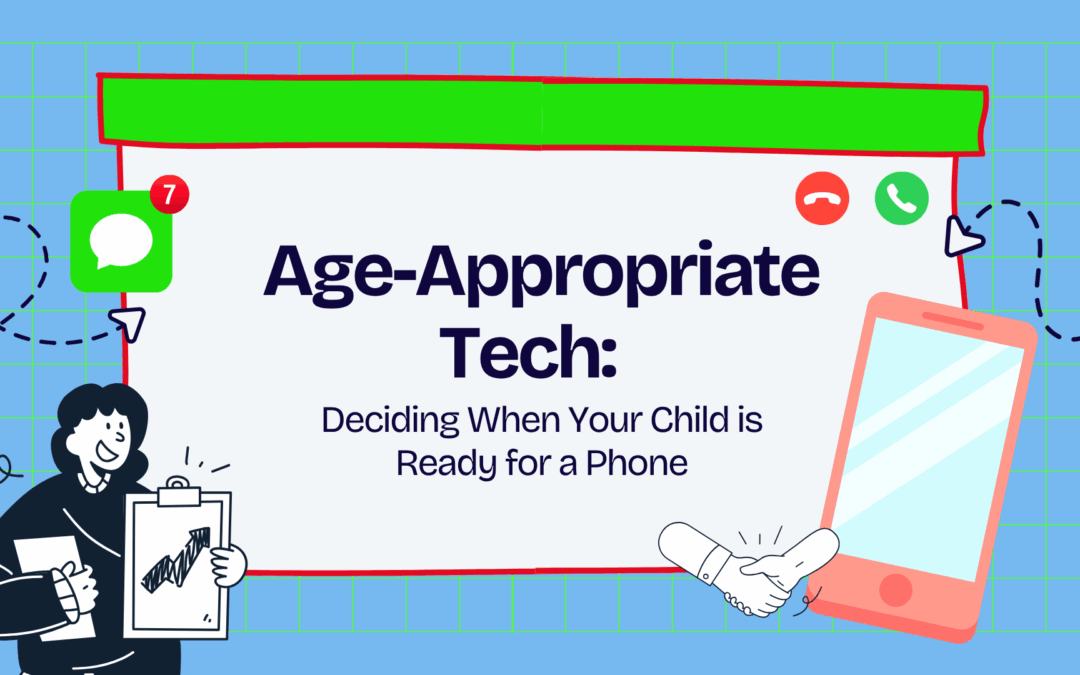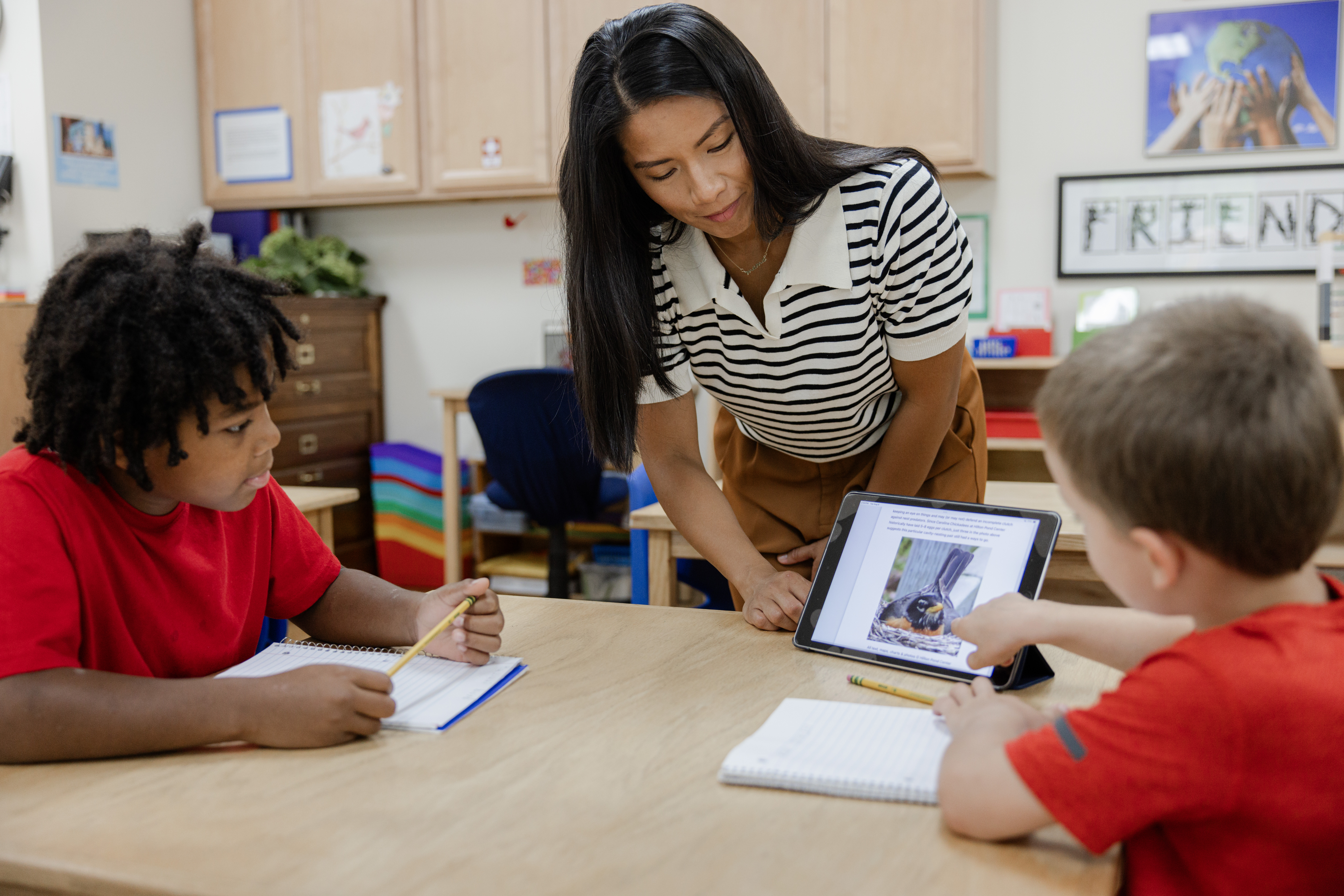When is the right time to give your child a phone? If you’ve found yourself Googling “what age should a kid get a phone?” or fielding the infamous “Hey Mom, when can I get a phone?” question, you’re not alone. In today’s digital-first world, deciding when your child is ready for a smartphone can feel overwhelming—but it doesn’t have to be. In this guide from Kids Digital Health Hub, we’re breaking down the emotional, developmental, and practical signs of tech readiness. From age-appropriate tech options to creating a healthy family tech plan, here’s everything parents need to know about introducing phones in a thoughtful, safe, and age-appropriate way.
Table of Contents
“Hey Mom, When Can I Get a Phone?” A Real Talk About Tech Readiness
“Hey Mom, when can I get a phone?”
She was 11. I wasn’t ready.
How could she be?
She didn’t even have a Chromebook at school yet—and honestly, who was she thinking she was going to call?
The pressure was real, and we’d reached a road I wasn’t ready to go down. Not because I’m a tech-avoiding hermit, but because I knew deep down: once that door opens, it doesn’t close. And I needed more time. She needed more time.
This is the battle many of us are waging every day—between our kids’ growing curiosity and the very real impulse to protect their still-developing minds and hearts.
And here’s the thing—we’re not “bad” parents for saying no (or not yet). We’re wise ones.
Start With a Conversation
Before diving into rules and phone plans, we started with something simple but powerful: a conversation. Not a lecture. Not a power struggle. Just an honest talk.
I asked her:
- “Why do you feel like you need a phone?”
- “What are the most important things it will allow you to do?”
- “What do your friends use theirs for—and how does that make you feel?”
- “How can we meet your goals in a way that aligns with our family’s values?”
It wasn’t always comfortable—but it was always open. Because if we want our kids to come to us with the big stuff, we need to show we’re willing to talk about the everyday stuff too.
The Truth About Readiness (Hint: It’s Not About Age)
This is big: Tech readiness is not age-based.
Just like we don’t hand over car keys without driver’s ed, we shouldn’t hand over a smartphone without a plan.
Not all 11-year-olds are ready. Some 14-year-olds aren’t either. Emotional maturity matters more than a milestone birthday.
Here are signs your child might be ready:
- They can handle boundaries without constant pushback.
- They tell the truth—even when it’s hard.
- They’re able to stop screen time without a meltdown.
- They come to you when something online feels off.
If not? That’s OK. That just means… not yet.
Our Family’s Tech Stair-Step Plan
We’re not anti-tech—we’re intentional tech.
And here’s how we approach it in our home:
1. Elementary School — No Personal Devices
- Devices are used with adult guidance, in public spaces—not bedrooms.
- All tech is filtered, monitored, and used sparingly.
- We talk about how tech can be helpful—not just fun.
2. Late Grade School / Early Middle School — Tech Training Wheels
We introduce basics with safe, age-appropriate tools like:
- ✅ Smartwatches (Bark, Gabb, Gizmo) — Allow texting/calling parent-approved contacts only.
- ✅ House “dumb” phone — A basic flip phone kids can borrow for practice.
- ❌ No social media, YouTube, cameras, or open internet access.
These low-risk devices offer connection without overwhelm.
3. Beyond 8th Grade — A Controlled “Dumb” Phone
- App restrictions
- Screen time limits
- Monitoring software
- Still no social media
🏆 Recommended Tools: Bark, Covenant Eyes, Securly, Clean Browsing DNS
4. High School and Up — Trust Grows, Access Expands
- More privileges, more responsibility.
- But conversations, check-ins, and filters don’t stop.
- Freedom is earned through maturity, not age.
Create a Family Tech Plan (Yes, Really)
Just like curfews and chores, phones need clear boundaries too.
📝 A written Family Tech Plan creates clarity (not control). Include:
- Device usage rules (when/where/how)
- Approved apps
- Communication boundaries
- Expectations for safety (no phones in bedrooms or bathrooms)
- Clear consequences for misuse
This isn’t a “gotcha” contract—it’s about safety, trust, and teamwork.

You’re Not Alone (Not Even Close)
Movements like Wait Until 8th exist because thousands of parents are holding the line—and many are breathing a huge sigh of relief when they realize they don’t have to rush.
When we delay smartphones:
- Kids build real-world relationships
- They discover who they are without filters
- And they learn responsibility in phases
We’re not punishing them—we’re preparing them.
Final Thoughts
This isn’t about fear—it’s about facts.
It’s about brain development, boundaries, and bold love.
You’re not outdated or overprotective for saying “not yet.”
You’re insightful. Intentional. Brave.
So if your kiddo says, “Can I have a phone?”
You can feel confident saying,
🚫 “Not yet—let’s talk about why.”
Because readiness isn’t about age.
It’s about growing together—one conversation, one boundary, and one brave step at a time.
—
Did this article resonate with you? Share it with a fellow mom who’s navigating the same questions—or drop your tech journey in the comments. Let’s raise strong, smart, screen-wise kids… together.





